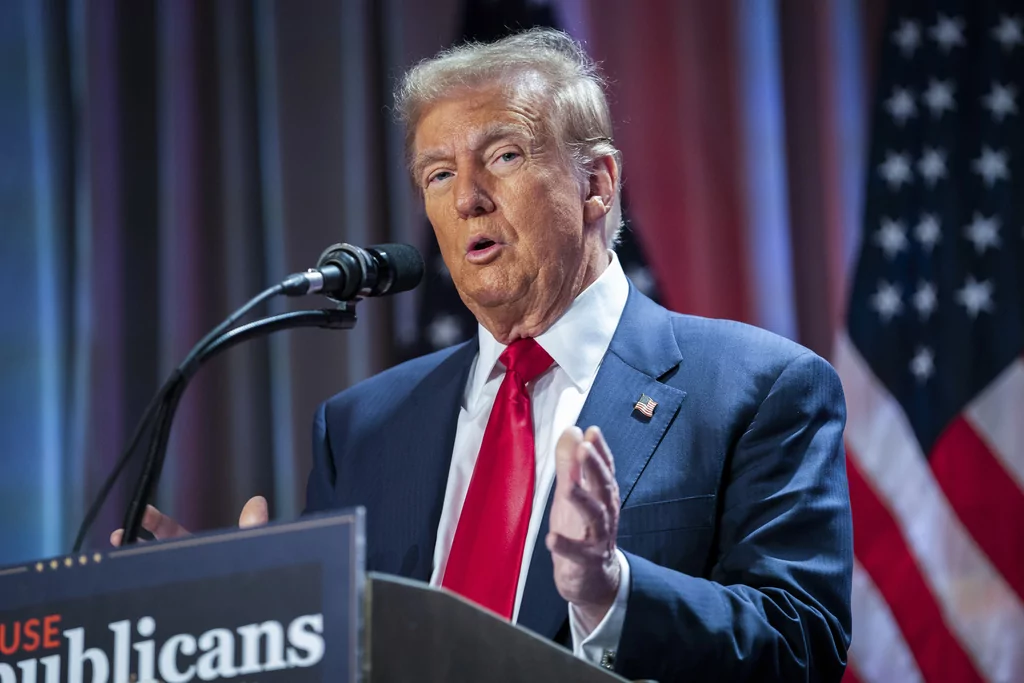

President-elect Donald Trump and his top advisers have long cited impoundment, a little-known legal theory, as a means of shrinking the federal government. But, pursuing that path will almost assuredly bring the incoming administration before the Supreme Court.
The Constitution grants Congress sole authority to appropriate a federal budget, but impoundment theory essentially claims that any president has unilateral authority to ignore Congress’s funding bills and withhold or “impound” funds meant for programs, agencies, or departments deemed unsuitable by the White House.
The only catch? Congress passed legislation during the Nixon administration that required the president to spend funds appropriated by Congress.
TRUMP CABINET PICKS: WHO’S BEEN TAPPED TO SERVE IN THE PRESIDENT-ELECT’S ADMINISTRATION
The law caused President Joe Biden some headaches in the fall of 2023 after he restarted construction on a southern border wall. The Biden White House claimed, at the time, that after seeking to claw back the funds appropriated under the first Trump administration, the president would be forced by the Congressional Budget and Impoundment Control Act of 1974 to restart border wall construction.
The Government Accountability Office found that Trump violated the Impoundment Control Act in 2019 when he tried to withhold security funds to Ukraine, which was at the heart of Democrats’ first impeachment case against the 45th president.
Trump’s team argues that the impoundment legislation is unconstitutional, claiming that Article II of the Constitution obligates the president to “faithfully execute” the law, including an implicit requirement not to enforce unconstitutional legislation. Trump’s advisers claim that presidents dating back to Thomas Jefferson have impounded funds when necessary.
Trump himself claims that Article II grants him “the right to whatever I want as president” and that impoundment is a “crucial tool with which to obliterate the Deep State.”
Russ Vought, Trump’s nominee to lead the White House’s Office of Management and Budget, has specifically championed impoundment in recent months.
WHAT HAPPENS NOW THAT TRUMP IS PRESIDENT-ELECT
“I believe the loss of impoundment authority — which 200 years of presidents enjoyed — was the original sin in eliminating the ability from a branch … to control spending,” he said during an interview with Fox Business earlier this year. “We’re going to need that back.”
Vought, who also served as OMB director for the latter half of Trump’s first term in office, has been working to popularize impoundment among conservative politicos throughout the Biden administration.
ProPublica unearthed audio of speeches Vought delivered in 2023 and 2024 at events hosted by the Center for Renewing America, the pro-Trump think tank he helmed during the Biden years, where he described executive means to combat a “Marxist takeover” of the federal government and shrink the federal bureaucracy.
“I don’t want President Trump having to lose a moment of time having fights in the Oval Office about whether something is legal or doable or moral,” he said.
WHAT TRUMP HAS PROMISED TO DO ON DAY 1 IN THE OVAL OFFICE
Trump lauded Vought in a statement announcing his nomination to OMB.
“Russ knows exactly how to dismantle the Deep State and end Weaponized Government, and he will help us return Self Governance to the People,” the president-elect wrote.
Trump has also tasked Elon Musk and Vivek Ramaswamy with leading the Department of Government Efficiency, a new effort to curtail federal waste. The pair signaled a looming Supreme Court fight to enact sweeping cuts.
“With a decisive electoral mandate and a 6-3 conservative majority on the Supreme Court, DOGE has a historic opportunity for structural reductions in the federal government. We are prepared for the onslaught from entrenched interests in Washington,” Musk and Ramaswamy wrote in a recent op-ed for the Wall Street Journal. “We expect to prevail.”
HOW TRUMP’S PROMISE TO ABOLISH THE DEPARTMENT OF EDUCATION WOULD WORK
Any move by Trump to fire large swaths of the federal workforce, at the suggestion of DOGE, would launch a judiciary battle bound for the Supreme Court.
“To the extent that you could try to implement it unilaterally, you would need some kind of authority to impound — to just not do what Congress has said you’re supposed to do,” said Bowdoin College professor Andrew Rudalevige, who specifically studies the powers of the presidency. “It’ll lead pretty directly to constitutional conflict, but that, I think, is the only way that you could impose unilaterally presidential wishes in this area.”
Trump advisers believe that the Supreme Court would side with the administration on an impoundment decision, a view shared by South Texas College of Law professor Josh Blackman.
CLICK HERE TO READ MORE FROM THE WASHINGTON EXAMINER
“The most relevant data point is that Chief Justice John Roberts worked in the Reagan White House,” he told NPR. “I think he’d be very sympathetic to the arguments that were so influential in his earlier career, so I think Trump might actually have a shot at this one.”







